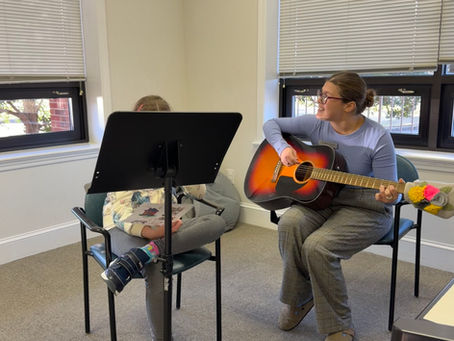top of page
Search
All Posts


Saxophone and Music Therapy
By: Ashton Becks, MT Intern Circa 2014, 6th grade Ashton was ready to join the school band. After trying a few instruments, trumpet, clarinet, tuba, he landed on the saxophone. Why? Because he thought it was super cool! Shocker, right? Even though I really didn’t make an educated decision when choosing the saxophone as my primary instrument, I have grown to love it so dearly over the past 11 years. I played through middle and high school, and I continued in college. I played
director863
Feb 23 min read


An Intern’s Best Friend: Her To-Do List
By: Anne Frances Frazier, Music Therapy Intern Before becoming a music therapy intern, I’ll be honest and say that I struggled with staying on top of tasks and completing them on time. At times, it felt really difficult juggling so many different responsibilities along with all the other things that come with being a college student. Everyone has been there, and I think an important part of maturing and transforming into a professional is finding a solution that works for yo
director863
Jan 312 min read


What Does Internship Sound Like?
Written by: Anne Frances Frazier, Music Therapy Intern As a musician and a music therapy intern/aspiring music therapist, it is safe to say that music is all around me all the time. Every era of my life can be defined by a soundtrack representing the experiences and feelings happening at that time, since music so heavily makes up my daily framework. Whether it be a song as my alarm in the morning, my commute hype-up, learning songs for clients, an earworm, my chill mix on the
director863
Jan 232 min read


Top 3 Music Therapy Myths I’ve Encountered as an Intern
Written by: Ashton Becks, MT Intern I am now in the midst of my 5th month as a music therapy intern, and I’ve had the privilege of soaking up a ton of knowledge about the field. A part of this internship I don’t think I entirely expected is the amount of times I’ve been given opportunities to dispel misconceptions and advocate for music therapy. Sometimes, these myths have come from family members who have never heard of music therapy, and sometimes, these myths come from fel
director863
Jan 143 min read
bottom of page
